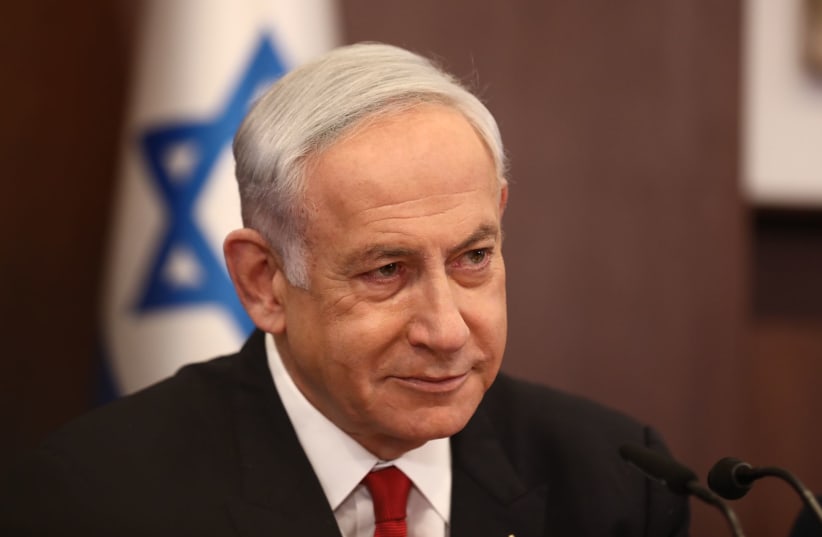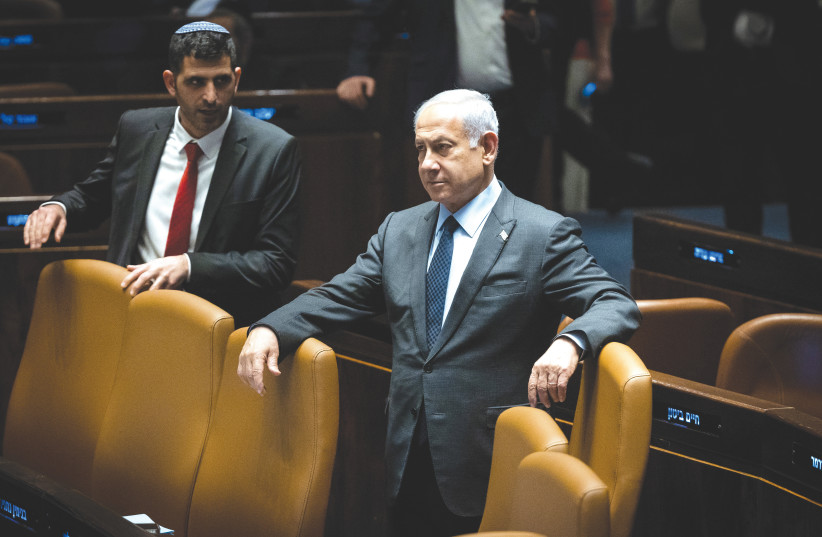Judges appointed by the reformed Judicial Selection Committee will not preside over Prime Minister Benjamin Netanyahu’s corruption trials, his legal team said Sunday. Its position came in response to a petition to the High Court of Justice that called for Netanyahu to be placed in contempt of court for allegedly violating a conflict-of-interest agreement.
Netanyahu’s legal team asked the court to reject the Movement for Quality Government in Israel (MQG) petition, which was filed on March 26 in response to his March 23 speech announcing his involvement in the judicial reforms and Attorney-General Gali Baharav-Miara’s subsequent warning that it violated his conflict-of-interest agreement.
Netanyahu legal team: Judicial reform goes beyond scope of legal arena
The judicial reforms go beyond the scope of the legal arena, and Netanyahu was obliged to try and bring about broad agreement to prevent violence and ensure law and order, his legal team said. Addressing an issue that has gone beyond the legal realm and into other aspects of the state was required of Netanyahu, it said, and as prime minister, he was entrusted with the well-being of the state.
Baharav-Miara’s interpretation of the conflict-of-interest agreement was too broad, Netanyahu’s legal team said.
On February 1, Baharav-Miara informed Netanyahu in a letter that involvement with the judicial reform, especially pertaining to the Judicial Selection Committee, would constitute a violation of the agreement that was drafted by her predecessor, Avichai Mandelblit.
According to Netanyahu’s legal team, not only was there no prohibition on discussing the committee, but the original court ruling that required the agreement did not include mention it.
In response to Netanyahu’s legal team’s response to its petition, the MQG said the prime minister did not understand that his actions had consequences.
“Netanyahu is prohibited from dealing with matters pertaining to judicial reform, but he is knowingly choosing to violate the court’s orders and even admits to it,” it said.
The conflict-of-interest agreement prepared by Mandelblit precluded Netanyahu from involvement in the appointments of law enforcement and judicial officials. A key element of the judicial reform first proposed by Justice Minister Yariv Levin in January would alter the composition and procedures of the Judicial Selection Committee to give elected officials and the ruling coalition more power on the panel.
Since the announcement of the reform, protests have rocked the country, ultimately leading Netanyahu to pause the Judicial Selection Committee legislation.
The MQG’s petition to have Netanyahu put in contempt of court would have the court use the enforcement measure to push Netanyahu into compliance with the conflict-of-interest agreement. The court would be able to level fines or even short jail terms.
“In a state with the rule of law, all citizens are required to obey the provisions of the law, including prime ministers, and those who knowingly choose to stand in contempt of court must be held accountable for it,” the MQG said.

